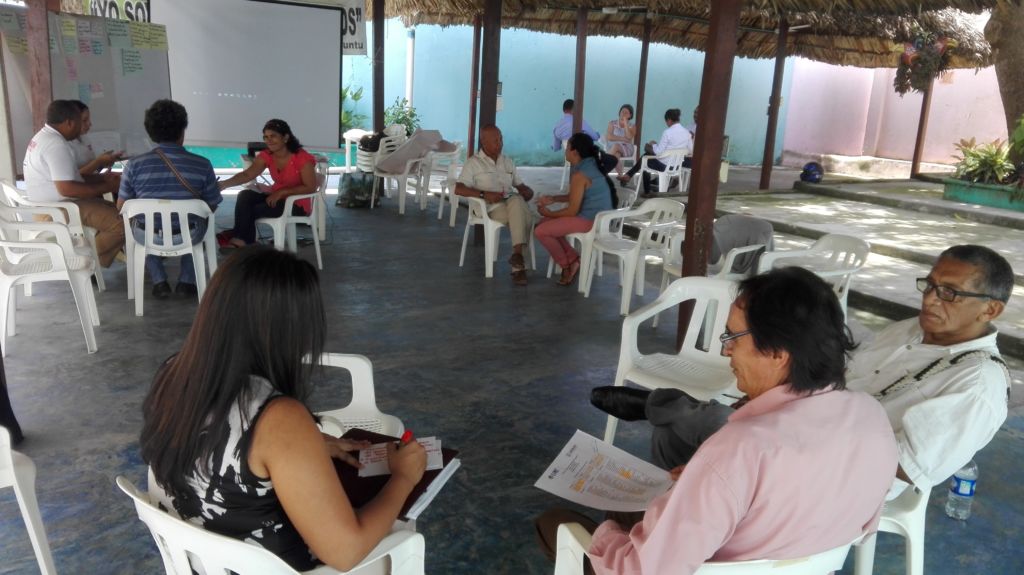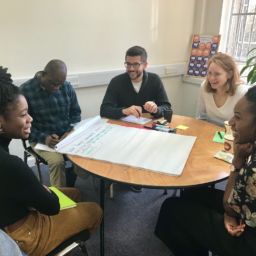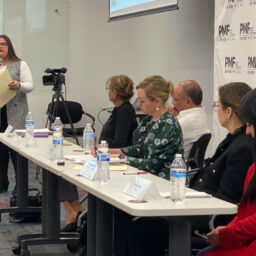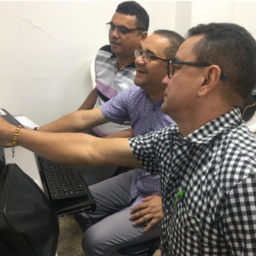Author: Clara Inés Romero – Local facilitator of the ALG-Colombia. This text was originally written in Spanish. See the original version here.
In September 2018, about 80 Civil Society Organizations (CSO) from the Montes de Maria region in Colombia were summoned to attend a presentation about the “Facilitating Financial Sustainability” (FFS) USAID-funded project. Expectations were high for two main reasons: USAID’s involvement in the project and the objective of the initiative: financial sustainability.
It was easy for the representatives of the CSOs to assume that the meeting was about the procurement of new funding, which is scarcer than ever for organizations in the region.

However, the meeting was not about what the organizations expected. It was about something so much more important!
The representatives from the 16 CSOs that finally committed themselves to the project and learned what USAID and its implementing partner had to say about financial sustainability, were accompanied and supported by LINC throughout a 15-months period during which they reflected and learned about the importance of financial sustainability.
They understood that as organizations, they needed to work not only toward attaining its social objective, but also about becoming financially sustainable, as it would help their organizations last in time.
CSOs came together as a group and worked to identify the pros and challenges of becoming financially sustainable. They all had a common interest in the ideas that they came up with. This set the ground for a collective action scenario.
And that is how the Action Learning Group (ALG)-Colombia was born!
The member organizations worked together to identify opportunities that would help them improve the local conditions that make it more challenging for them to achieve financial sustainability.
They considered conducting individual assessments for each organization as a baseline to identify where each of them stood in terms of their sustainability and what actions they needed to take to improve.
LINC offered the ALG some funding to develop and implement an Action Plan that would allow them to address their identified needs and strengthen their overall capacity.
And as a result of this process, the following lessons came up:
- The creation of small working groups with similar interests and needs helps develop joint actions in the region. The ALG not only reached its goal, but also made it possible to strengthen ties between its members, learn more about the work carried out by the organizations, and establish institutional synergies.

- Although financial sustainability is directly related to access to funding. Simple funding is not a guarantee for an organization to remain sustainable. Montes de Maria became one of the regions with the highest level of investment in Colombia, but the concentration and dispersion of these funds, in some cases, were a factor that didn’t allow some CSOs to achieve sustainability.
- There was a “boom” of organizations created in the 2000’s, but many of them did not foresee what it required to remain an active organization. They didn’t realize the administrative and fiscal burden that it required. The fact that many organizations were created as a response to specific development programs didn’t help much either.
- CSOs in Montes de Maria are still not strong enough to manage resources, especially when they are from international cooperation or from the government. The requirements that these funders impose are often not met by most CSOs, due to their aforementioned weaknesses. Addressing these weaknesses is not that easy, considering that due to their nonprofit nature, organizations do not receive any profits that would allow them to reinvest in their comprehensive institutional strengthening (human resources, administrative management, IT, etc.).
- International donors do not allow the cost of some items or areas that are fundamental for the execution of the project to be included as direct costs in a budget. Even though it is the donor who manages the funding, it should not lose sight of the fact that the one that bears the greatest burden of the execution is the organization, and that to do so, it requires minimum standards that allow it to carry out its work in a dignified and comprehensive manner. Therefore, allowing some flexibility in the direct and indirect costs in the projects, would help greatly in helping improve the situation.
- The ALG shone a light into these challenges, hence, its members understand that organizations should strengthen their capacity to negotiate the projects that they plan to take over and implement.
The ALG has an enormous opportunity to enhance the skills and expertise of the CSOs in Montes de Maria. They must continue working to reinforce this “intangible asset”. This is their best strategy to achieve their own sustainability.



